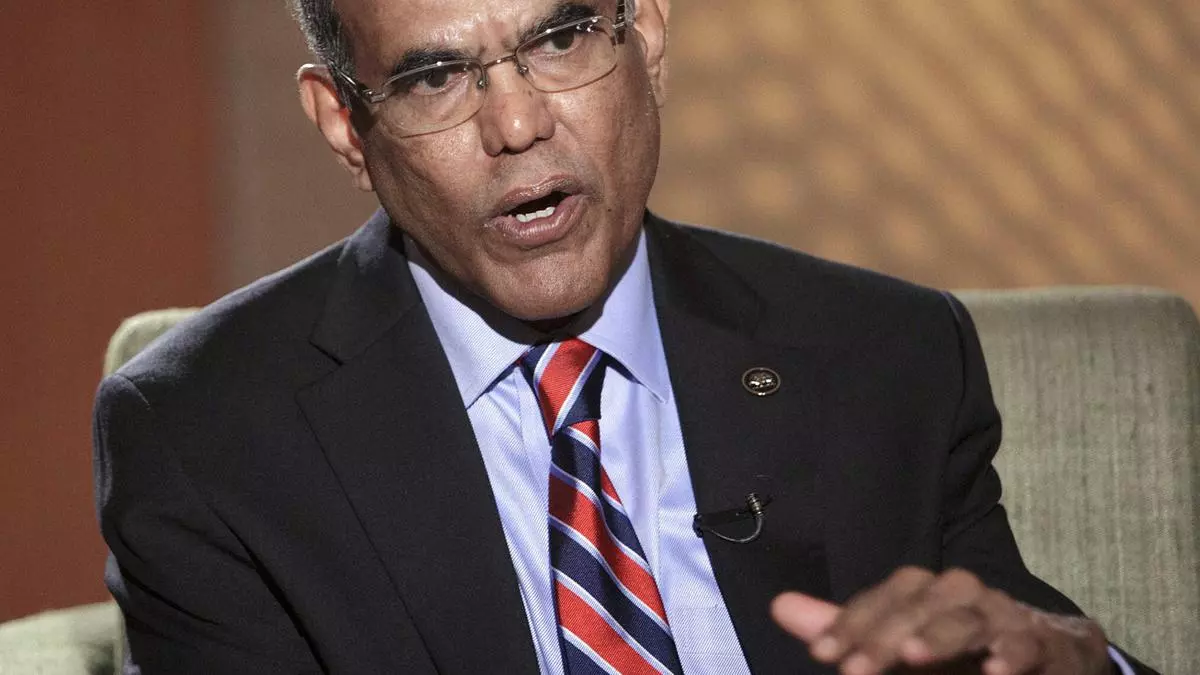Banks must be innovative in scouting for opportunities: D Subbarao
Emphasising that the burden of meeting India’s $5-trillion economy target will fall on banks, Dr Duvvuri Subbarao, Former Governor, RBI and visiting faculty, Yale University says high quality banking is critical for the country. Edited excerpts:
What is the role of banks and banking in India’s march to a $5-trillion economy?
To get to a $5-trillion economy, India certainly needs more banking; importantly, it also needs higher quality banking.
We know from development experience that the credit intensity of GDP increases as the size of the economy expands. This means the economy will demand more credit per unit of GDP as it grows in size. The burden and responsibility of meeting this growing credit demand will fall on the formal financial sector, and in particular on banks.
In meeting this challenge, banks will have to focus on three areas. The first is more efficient financial intermediation in channelling savings into investment. Distressingly, household financial savings, the mainstay of our savings, have been falling in recent years and one of the reasons for that is that banks have not been able to reward savers adequately. In order to fulfil the $5-trillion dream, banks must reverse this trend, expand the base of savers and reduce their intermediation costs.
The second focus area is to channel credit to investment and trade. It’s inconceivable that we can sustain a $5-trillion economy without much larger private investment in manufacturing and services. Banks have to be innovative in scouting for opportunities. One of the big challenges going forward will be to generate job intensive growth and here banks will have to pay special attention to the ‘missing middle’ – the MSME sector which creates more jobs per unit of investment than the large corporate sector. What this means is that banks will have to work on the entire vertical chain of private investment.
Similarly, increased trade – higher exports and imports – will be critical to faster growth. We need to diversify both our export basket and export markets. Similarly, our import basket too will expand and diversify. Trade expansion too cannot happen without banks taking a lead role. They have to behave like venture capitalists in financing trade while carefully balancing risks and rewards.
The third focus area for banks in our march to $5-trillion GDP has to be financial inclusion. It’s possible to get to $5 trillion with the benefits of growth being cornered largely by the high income segments with the bottom segments left behind. That will be a shallow victory; it will be self-defeating and ultimately unsustainable. Many things have to fall in place to engineer the ‘trickle down’ and one of them is financial inclusion. What the poor want is not doles, but opportunities to raise their incomes. It’s a mistake for banks to see financial inclusion as an obligation; they should see it as an opportunity. We know that the opportunity at the bottom of the pyramid is immense; those who go looking will be amply rewarded.
What are the challenges and opportunities that banks will face in supporting faster growth?
The list on both sides of the ledger is long. Foremost on the opportunities side is digital technologies which have changed banking in ways we could not even imagine. Even barely literate people are able to do UPI transactions on WhatsApp and Paytm; QR codes are the most
ubiquitous sight on our urban streets; and bespoke ‘sachet’ loans to suit individual customer demands are gaining currency. Digital technologies have reduced the cost of banking – the costs of appraising credit applications, onboarding customers, disbursing credit, monitoring and recovering loans have all declined. Big data and AI are making it possible to apprise the creditworthiness of even people with no prior footprint in the formal financial sector. Furthermore, banks have the opportunity to tie up with fintechs to combine their experience with the latter’s niche expertise to deliver credit optimally.
On the challenges side, let me mention just three important ones. The first is climate change which will pose known and as yet unknown risks to banks and banking. The second is financial globalization which means, as we well know by now, that a threat to financial stability anywhere is a threat to financial stability everywhere. The third is cyber security which for obvious reasons will be a growing challenge.
It’s often said that for a $5-trillion economy, India needs more banks. Do you agree?
That’s an ‘apple pie and motherhood’ statement. You can’t really disagree with it. But as I said before, more important than more banks is more and higher quality banking.
Development experience evidences a strong correlation between financial sector development and economic growth, with the causation possibly running both ways. Economic growth generates demand for financial services and spurs financial sector development. In the reverse direction, the more developed the financial sector, the better it is able to allocate resources and thereby promote economic development.
In India, we have experienced causation in both directions. Shortly after the 1991 reforms, we realized that the growth impulses generated by the liberalizing regime could not be sustained unless we also undertook financial sector reforms. That is an illustration of growth triggering financial sector development. For an example of the causation in the reverse direction, we have to look no further than India’s remarkable growth acceleration in the period 2003-08 when we clocked growth of 9+ per cent.
Many factors have been cited as being responsible for this – higher savings rates, improved productivity, growing entrepreneurism and external sector stability. But one of the unacknowledged drivers of that growth acceleration has been the impressive improvement in the quality and quantum of financial intermediation in India, evidencing how financial sector can spur growth.
This experience illustrates the importance of banks and banking in fulfilling our $5 trillion aspiration.
Published on April 4, 2024
